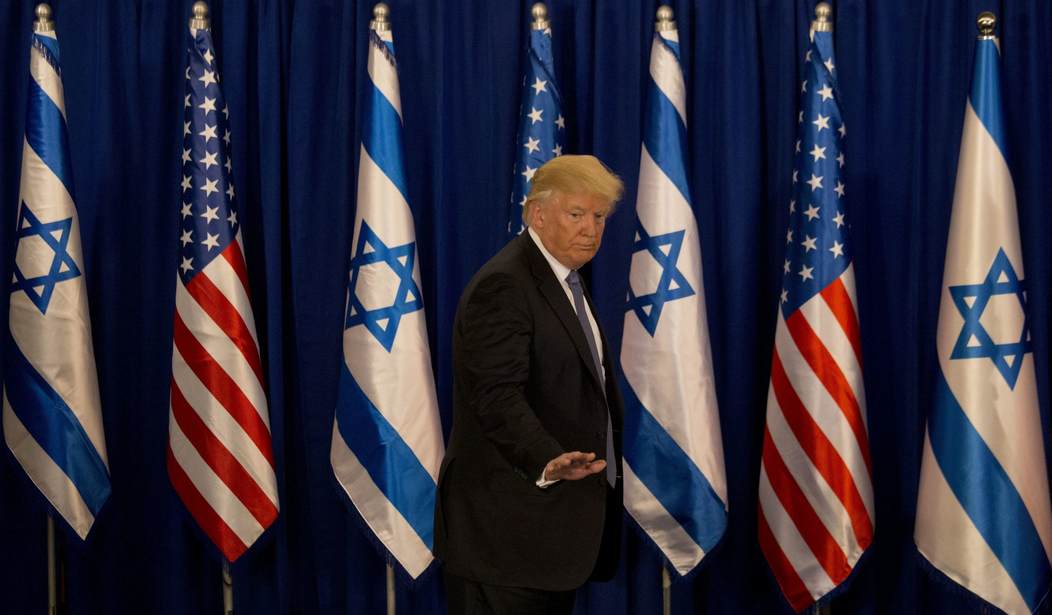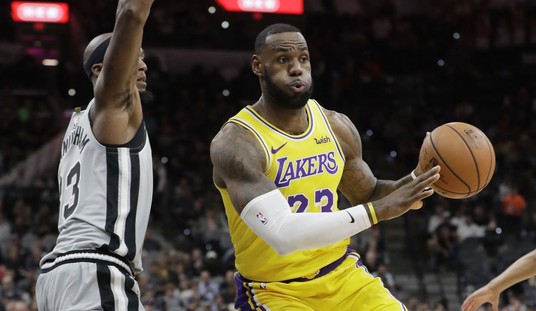President Trump arrived in Israel this morning on what was apparently the first direct flight ever from Riyadh to the Holy Land. He also became the first U.S. president to visit Israel so early in his term, and the first serving U.S. president ever to visit the Western Wall — the 2,000-year-old section of a retaining wall of the Second Temple, Judaism’s holiest site.
In Riyadh, Trump had given a long, sharp-edged speech that most Israelis saw as a success. Trump called on his audience of Arab and Muslim leaders to root out terrorism entirely, dispensing with the euphemisms used by his predecessors. He decried “Islamist extremism and the Islamist terror groups it inspires.”
Trump also spoke unsparingly of Israel’s existential enemy, the Iranian regime:
For decades, Iran has fueled the fires of sectarian conflict and terror.
It is a government that speaks openly of mass murder, vowing the destruction of Israel, death to America, and ruin for many leaders and nations in this room.
…
Until the Iranian regime is willing to be a partner for peace, all nations of conscience must work together to isolate Iran, deny it funding for terrorism, and pray for the day when the Iranian people have the just and righteous government they deserve.
Trump also announced a massive $110 billion arms sale to the Saudis. Some top Israeli officials reacted with alarm, citing both the size of the sale and the fact that — against protocol — the administration had not first consulted with Israel about it. Others, however, insisted the deal was nothing to worry about; Israel and Saudi Arabia are indeed in a tacit alliance against Iran. However, Saudi Arabia remains hostile to Israel, has no diplomatic relations with it, and is rife with animosity toward the Jewish state. And the Middle East remains unpredictable, especially in the longer term.
Once Trump arrived in Israel, however, the talk was of peace. As Trump put it while speaking at Ben-Gurion International Airport:
We have before us a rare opportunity to bring security and stability and peace to this region and to its people, defeating terrorism and creating a future of harmony, prosperity and peace. But we can only get there by working together.
Prime Minister Benjamin Netanyahu, for his part, said:
Israel’s hand is extended in peace to all our neighbors, including the Palestinians.
A day earlier, Netanyahu’s cabinet had — complying with a request by Trump — announced a package of goodwill gestures to the Palestinian Authority.
From the airport, Trump moved on to holy sites in Jerusalem: first the Church of the Holy Sepulchre, then the Western Wall. There, in a black skullcap, he prayed and — in keeping with the custom — left a note in a crevice of the ancient wall. Even left-leaning Israeli newscasters were moved; Trump’s sentiment appeared genuine, the experience a powerful one for him.
Trump’s next stop was the King David Hotel in Jerusalem for a parley with Netanyahu. In a photo-op before their meeting, Trump addressed an issue that has reportedly sent shock waves through the Israeli defense establishment. Trump said, of the media’s coverage of his talk last week with Russian foreign minister Sergey Lavrov:
I never mentioned the word or the name Israel. … So you got that story wrong, too.
What is of concern, of course, is that the source of the top-secret information Trump conveyed about ISIS and its plans could be inferred whether or not Trump specifically mentioned Israel. Or as The Times of Israel noted:
Trump’s statement was seen by some as confirmation that the source was in fact Israeli …
Though Washington and Jerusalem have publicly brushed aside reports of the incident, behind the scenes top Israeli defense officials are said to be seething and concerned by the president’s actions.
More agreeable to Israeli ears was Trump’s jibe, during this same photo-op, at his predecessor’s nuclear deal with Iran. As Trump described it:
We gave them wealth and prosperity … and an ability to continue with terror.
In a final appearance before the press after their meeting, Trump and Netanyahu both sang the praises of the U.S.-Israeli alliance. Trump, addressing the Palestinian issue, said:
I’ve heard it’s one of the toughest deals of all, but I have a feeling we will get there eventually, I hope.
For the large majority of Israelis, who have learned the hard way that the large majority of Palestinians — and their leaders — continue to regard Israel as a nemesis with no claim on life, such cautious wording came as a relief. This was a welcome contrast to the Obama team’s grim determination to pressure the Israeli side into a supposedly attainable deal.
While concerns about the Saudi arms sale and about Trump’s serious indiscretion last week with Lavrov continue, the events of the last two days in Saudi Arabia and in Israel are encouraging to Israelis. Trump and his administration appear serious about terror, serious about the Iranian threat, appreciative of Israel, able to distinguish between allies and enemies in the roiling Middle East, and aware that Israeli-Palestinian peace is a tall order.
On Trump’s agenda for Tuesday: an apparently brief meeting with Palestinian Authority chairman Mahmoud Abbas in Bethlehem in the morning, and an address at the Israel Museum in Jerusalem in the afternoon. Israel and much of the world will be tuned in with great interest.









Join the conversation as a VIP Member